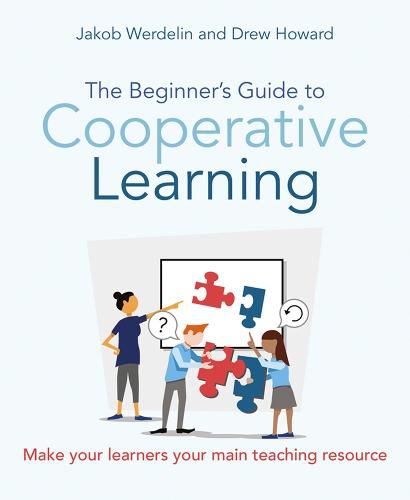Readings Newsletter
Become a Readings Member to make your shopping experience even easier.
Sign in or sign up for free!
You’re not far away from qualifying for FREE standard shipping within Australia
You’ve qualified for FREE standard shipping within Australia
The cart is loading…






The Education Endowment Foundation’s Teaching and Learning Toolkit describes collaborative learning as an approach which ‘involves pupils working together on activities or learning tasks’, and in such a way that enables ‘everyone to participate on a collective task that has been clearly assigned’. In the context of this book, cooperative learning relates to a number of such activities from simple memorising to more complex analysis and debating which are designed to boost learners’ interdependence, participation and interaction.
Drawing upon both research-informed theory and real-world examples, Jakob Werdelin and Drew Howard present both an insightful introduction to cooperative learning as a practice and philosophy and a practical guide to classroom application.
The authors share their expertise on how to amplify the effect of current pedagogical approaches and schemes of work, simplify performance management as an empowering tool for teachers and leaders, and create an inclusive environment in which every pupil is able to fulfil their learning potential. Jakob and Drew also discuss how cooperative learning relates to a range of other aspects of teaching, including assessment, metacognition and Rosenshine’s Principles.
$9.00 standard shipping within Australia
FREE standard shipping within Australia for orders over $100.00
Express & International shipping calculated at checkout
The Education Endowment Foundation’s Teaching and Learning Toolkit describes collaborative learning as an approach which ‘involves pupils working together on activities or learning tasks’, and in such a way that enables ‘everyone to participate on a collective task that has been clearly assigned’. In the context of this book, cooperative learning relates to a number of such activities from simple memorising to more complex analysis and debating which are designed to boost learners’ interdependence, participation and interaction.
Drawing upon both research-informed theory and real-world examples, Jakob Werdelin and Drew Howard present both an insightful introduction to cooperative learning as a practice and philosophy and a practical guide to classroom application.
The authors share their expertise on how to amplify the effect of current pedagogical approaches and schemes of work, simplify performance management as an empowering tool for teachers and leaders, and create an inclusive environment in which every pupil is able to fulfil their learning potential. Jakob and Drew also discuss how cooperative learning relates to a range of other aspects of teaching, including assessment, metacognition and Rosenshine’s Principles.